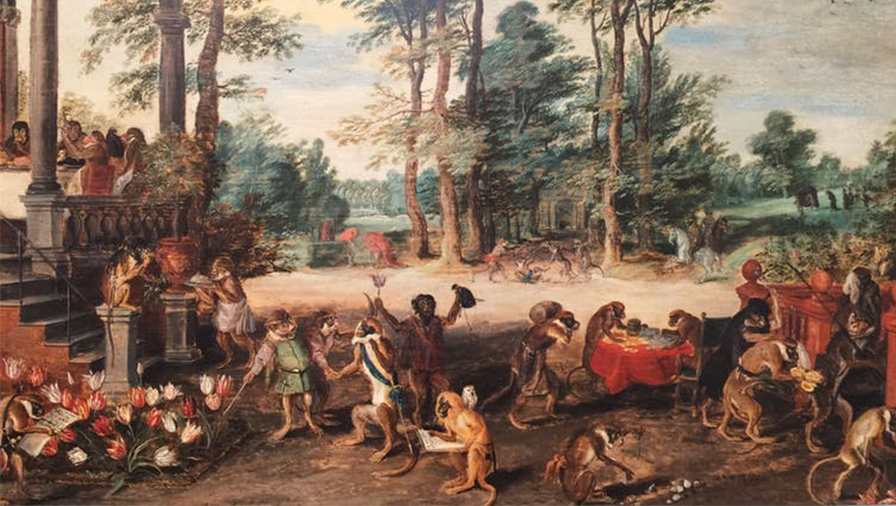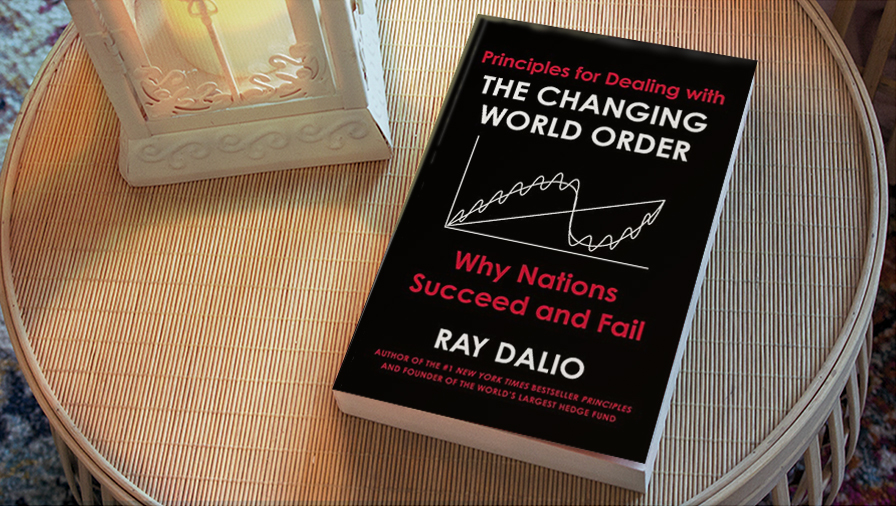Learning from the past: A cyclical view
OPINION: A hedge fund manager’s prescription for why nations rise and fall.
OPINION: A hedge fund manager’s prescription for why nations rise and fall.
The public response to the pandemic has questioned advice from the scientific community, which is also under siege from new political and cultural priorities over funding and delivery.
So far, financial advice has resisted this form of intellectual colonisation. Though governed by many rules and regulations, qualified advice-givers can fall back on caveats that cannot be compared with proven scientific principles.
A typical NBR reader would be more informed than most, as experts quoted in the articles on this website have established reputations. The articles are also likely to be more nuanced than the ‘sound bite’ quotes featured in popular media.
You are unlikely to find pictures of forest fires, collapsing ice shelves, stranded polar bears, extreme droughts, heavy flooding, and tornadoes illustrating a story on world temperatures in the past year.
Nor will you find the kind of balance that might point to the contribution of warmer temperatures to the productivity and efficiency gains in agricultural and horticultural output, or the boost export incomes in both New Zealand and Australia over the same period.
This broader view would be no surprise to Ray Dalio, founder of the Bridgewater Associates hedge fund – said to be the world’s largest – and author of three investing guidebooks, Principles: Life & Work, Principles for Success, and Principles for Navigating Big Debt Crises.
He has followed these up with Principles for Dealing with the Changing World Order, a text of some 560 pages of accumulated knowledge from a career on Wall Street spanning 40 years. He was in the media just a few weeks ago after a speech at the annual UBS Greater China Conference based on key themes from this book.
With this kind of status, Dalio is no shrinking violet when it comes to self-promotion and his confidence in the soundness of his ideas, though they are often couched with provisos that you don’t have to believe them. For those who haven’t time to read the full text, key sentences are set in bold to allow skimming.
Simplistic explanations
Earlier commentators on his Principles books have pointed out his advice on self-improvement and even financial gain are devoid of any deep expertise in ethics or philosophy. The latest volume is no exception, such as simplistic explanations of similarities in Karl Marx’s communism and modern capitalism, little mention of the impact of warming and cooling climate change on economies, and historical perspectives that lack insights from psychology, anthropology, and archaeology.
This is disappointing as Dalio has compiled dozens of financial charts from 1600 onward that show why nations succeed and fail. These are a valuable resource and they enable him to make investing calls that are more likely to be right than wrong. An appendix shows the prospects for the world’s 11 leading economies.
In simple terms, Dalio is a believer in ‘big cycle’ history; empires and countries have periods of prosperity and depression that are as regular as the tides. Prosperous times arise from a revolution or collapse, with peace bringing a rising tide of innovation and productivity. These are inevitably followed by conflicts over wealth and power, resulting in a decline into revolution and collapse.
These cycles are both internal and external, with threats coming from mismanagement of public and private finances, social unrest from widening inequality, and military or economic developments beyond the borders.

Currency devaluations
Undoubtedly, recent history presents plenty of evidence to support this explanation. A key thread since 1600 is the constant devaluation of reserve currencies, starting with the Dutch guilder. After 150 years, it gave way to British sterling and the gold standard, which lasted intermittently from the US Civil War in the 1860s to its final demise in 1971 and replacement by the US dollar.
Throughout this period, the reserve currencies have been through six major devaluations or credit crises from the beginning of the 20th century. In each case, prosperity faltered before starting the cycle over again.
In one interesting exercise, Dalio tracks the rise of the British Empire in the 18th century based on indicator charts he uses today to track the course of all major economies (New Zealand hardly features in this book). It is easy to do this in retrospect but not, if you are a hedge fund manager, to predict what would happen.
“I can now see what the indicators would have shown at the time … and I can [also] see from that, that the picture would not have been crystal clear that the British Empire would have gone on to become the dominant world empire.”
Instead, he adds, he would have picked the Dutch empire to continue to outstrip Britain, and that [pre-revolutionary] Bourbon France was a major power on the rise. In fact, both declined while Britain surged, thanks to the overthrow of the French monarchy in 1791 and the Dutch failure to capitalise on early commercial success by ignoring industrialisation.

Britain’s decline
Dalio times the decline of the British Empire from 1900, when inequality peaked (1% of the population owned 74% of the wealth) and a united Germany was a rising world power, only to collapse in two world wars.
Like many on Wall Street, Dario’s indicators show little hope for a powerful and prosperous European Union, or even Britain outside it.
“Europe’s debt is large, its economy is fundamentally weak, its internal conflicts are relatively large, its vitality and levels of inventiveness are relatively weak, and its military is not strong,” he writes. In addition, inequality has encouraged populism. That could be a wise observation when considering the pressure from Russia over Ukraine.
If Europe has slipped to secondary power status, the opposite is true of China, a major focus for Dalio and hence his appearance at the UBS summit. It is here that he is in more contentious territory, given his enthusiasm for that country’s economic achievements and his own high-level connections (he had his son partly educated there).
‘For an investor, understanding history accurately is of no use relative to being a bit more right or wrong about the future.’
China’s rise
The ‘big cycle’ theory is that China, having already experienced several dynastic collapses, is well into its peace and prosperity stage, while the US is declining. China’s currency, the renminbi, is headed to reserve status, thus challenging the dollar, and its economic power is being matched by military expansion.
Dalio takes a benign view of the Chinese Communist Party’s role, saying the differences in its state-backed capitalism are fewer than the similarities with the Western form. He emphasises the need for anyone dealing with China, and that means American politicians and business people, to see the world from their point of view.
While acknowledging the Chinese system falls short in some comparisons with Western capitalism, his criticisms are nothing like those outlined by critics such as Jeremy Warner in London’s Daily Telegraph: “Overinvestment, poor standards of corporate governance and accountability, government expropriation, lack of legal protection, political corruption, unreliable [corporate] reporting ...”
While Dalio makes passing reference to recent events in Hong Kong, he views US pledges to save Taiwan from a takeover to be not worth a shooting war. The Chinese people, he believes, will never be convinced that Western democracy is superior to the stability they have under the CCP.
This confidence also imbues Dalio’s big-picture view for investors, many of whom he thinks lack an understanding of what happened in the past and why. It is even more when looking into the future.
“For an investor, understanding history accurately is of no use relative to being a bit more right or wrong about the future,” he warns.
If you fear your knowledge of world history is scant, this book will give you a potted and conventional view. The warnings about the long-term debasement of currencies are also orthodox, though perhaps no longer accepted – or at least practised – by many central bankers. But investors in non-cash assets, such as real estate and stocks, will be reassured these remain the best cushions against the ravages of inflation, debt crises, military conflict, and bad political decisions. 
Principles for Dealing with the Changing World Order: Why nations succeed and fail, by Ray Dalio (Simon and Schuster).
Nevil Gibson is a former editor at large for NBR. He has contributed film and book reviews to various publications.
This is supplied content and not paid for by NBR.
Sign up to get the latest stories and insights delivered to your inbox – free, every day.